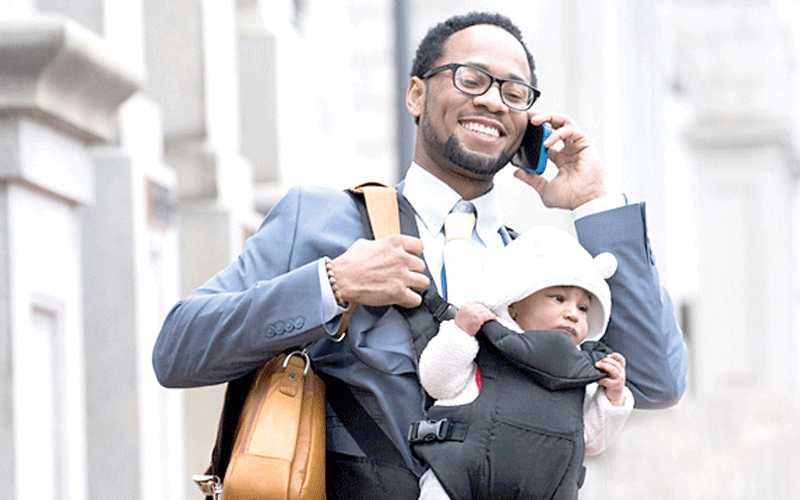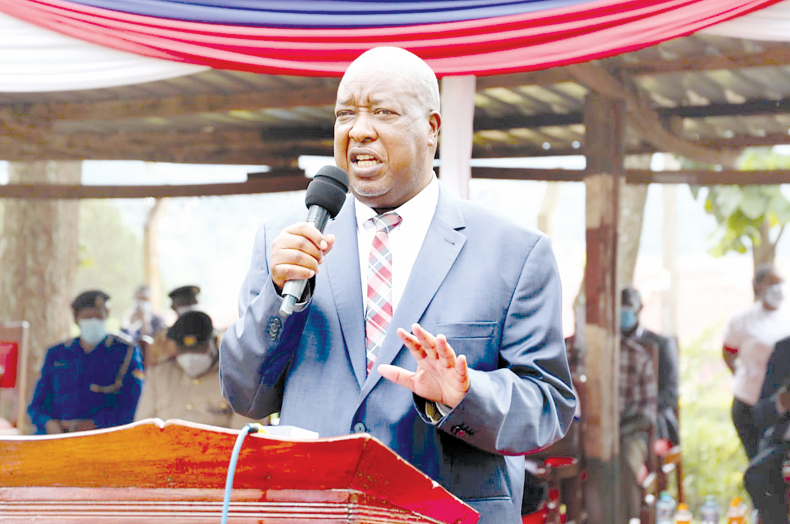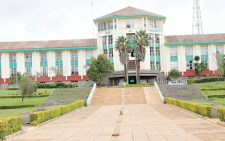Co-parenting in times of Covid-19 pandemic

The rules of coronavirus require every person to stay put in one household, especially those in areas on lockdown. Where does this leave children under joint custody?
Jasmine Atieno @sparkleMine
No doubt, the coronavirus pandemic has brought with it unique dynamics in the family.
As a result of lockdowns and social distancing measures, families are forced to adjust to new routines. And for those who have been co-parenting, it is proving quite a challenge.
Popular Mombasa-based artiste and father of two, PDay Hurricane shares how difficult things have been since his daughters, aged seven and two, have been separated from their mother after the partial lockdown in the coastal town.
“It was my turn to have the children, so I took them to my mum, that is their grandmother, after the schools shutdown since she had missed them. We had no idea there would be a lockdown.
Since the children were enjoying the time with their grandma, we decided to wait for the 21 days of lockdown, but when it was extended, the kids started missing their mum.
I have tried getting a pass for her, but it’s been hard. I keep lying to them every day their mum is on the way, but the truth is she cannot cross over from Mombasa to Kilifi.
The situation is frustrating, especially for the two-year-old. It is important for her to be closer to her mother at her age,” he shares.
The mum, has however, kept communicating with her children. “Their mother calls every day to talk to them, but that’s not enough,” says the musician.
Children oceans away
Janet Kingi, also known as Ronet, is a mother of three who has lived with her family in Bayern, Germany, for more than 14 years while running a music production business in Kilifi.
Due to challenges in the industry, she is often forced to fly to Kenya to ensure things are running well.
Only this unfortunate time, she couldn’t make it back on time and now she has to be away from her children indefinitely.
“I co-parent with my baby-daddy though I’m the one who lives with them. I miss my children dearly. I video call them everyday.
I was supposed to go back on March 30, but due to Covid-19, there are no flights.
It is a difficult time to be away from my family, especially with the current situation,” shares Janet.
For co-parenting families where children are not able to be with one parent, there can be an increase in stress and anxiety.
In such instances, children might be defiant, throw tantrums and some might show symptoms of depression such as having no motivation for doing day to day normal tasks, such as taking a bath, school work and the like.
According to psychologist Tracy Nyaguthii, there are still many children who are dealing with stress since Covid-19 separated them from their parents.
In cases where there are indifferences between parents, there is an additional burden of conflict.
“Co- parenting parents with special needs children are having an even tougher time.
Extra care is required to protect them from contracting the virus. As a result, their normal routine visits to see a physiotherapist or clinic visits are now reduced.
Normal routine visits from the other co-parent will be few, to reduce contact. This can bring a lot of stress and exhaustion to the primary care parent.
Children with special needs require support from both parents, as it positively impacts their mood (they are happy) and ensures their general wellbeing,” shares the psychologist.
As a recommendation, Tracy shares that it is important for all parents to accept that these are unique times. And the casualties of failed parenting are children.
Forging ahead
“Already there are reports of a surge in child abuse cases in the world. It is important that co-parents set aside their issues and work together to ensure the wellbeing of their children.
Families are different and there is no one particular method to manage families. As difficult as it is, co-parents need to discuss on how they can adjust for the benefit of their children.
The focuses of their discussions need to be children-centred and solution oriented. Co-parents need to be transparent about exposure to the virus, and discuss steps on how to protect their children.
Parents need to follow safety precautions such as hand washing and sanitising and communicate to each other that they are maintaining safety.
It is important that parents accommodate each other and are open for the sake of the children.
If there are money issues or suspected symptoms of the virus, they need to communicate,” she advises
Additionally, co-parents can use technology such as FaceTime or calls to maintain contact with their children.
Families need stick to regular routines such as bed time, meal times, prayer time and screen time to make children comfortable and alleviate anxieties.
Where parents are angry or having stress issues, Tracy says it is important to take a step back, relax and catch your breath.
She also emphasises on the need for parents to take care of themselves. “Self-care is important.
Parents need to take some time to do something special for themselves that helps them relax and makes them happy.
It could be a hobby, or fixing a special cup of tea,” she says.















